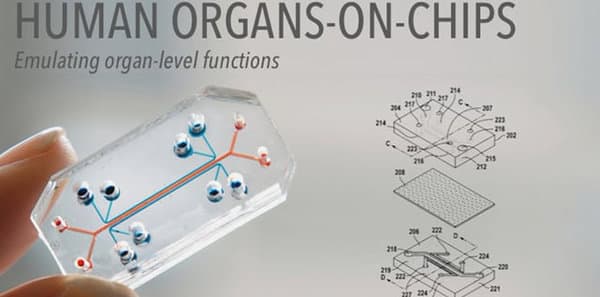Scientists seek help from Google Glass For Devising An Organ-On-Chip System
A group of scientists from the Brigham and Women's Hospital (BWH) has engineered an integrated organ-on-chip system powered by the much hyped, Google glass. In an open source paper, the team claimed that for the first time they will launch a complete bio sensing smart system featuring a software, firmware, hardware and definitely a robust glass framework. Scientists explained that by zeroing in on the smart spectacle from Google, they were immensely benefited after eliminating several limitations.
Organ-on-chip is a very new approach towards engineering monitored biology, where microfabrication of cell like systems on a chip can artificially simulate an actual organ’s function which ultimately helps in predicting the effect of synthetic products or drugs on a living organism. Owing to such an advanced technology, scientists can now vividly study an organ.

Previously, these microfluidic bioreactors were connected to conventional desktop computers which made the system more complex and bulky, especially when the analysis takes more than a week to finish. Incorporation of the latest wearable wonder, Google glass has unprecedentedly improved the flexibility and controllability of the system.
Yu Shrike Zhang and his colleagues customized new hardware and software support systems for glass which monitors and controls liver-on-chip and heart-on-chip systems that produce accurate results in real time. Ali Khademhosseini, a senior author of the research expressed the importance of such a smart platform which miniaturizes these systems and can revolutionize the field of biomedicine. The complete research was published in the latest issue of the Scientific Reports journal.
Source: #-Link-Snipped-#
Organ-on-chip is a very new approach towards engineering monitored biology, where microfabrication of cell like systems on a chip can artificially simulate an actual organ’s function which ultimately helps in predicting the effect of synthetic products or drugs on a living organism. Owing to such an advanced technology, scientists can now vividly study an organ.

Previously, these microfluidic bioreactors were connected to conventional desktop computers which made the system more complex and bulky, especially when the analysis takes more than a week to finish. Incorporation of the latest wearable wonder, Google glass has unprecedentedly improved the flexibility and controllability of the system.
Yu Shrike Zhang and his colleagues customized new hardware and software support systems for glass which monitors and controls liver-on-chip and heart-on-chip systems that produce accurate results in real time. Ali Khademhosseini, a senior author of the research expressed the importance of such a smart platform which miniaturizes these systems and can revolutionize the field of biomedicine. The complete research was published in the latest issue of the Scientific Reports journal.
Source: #-Link-Snipped-#
0
